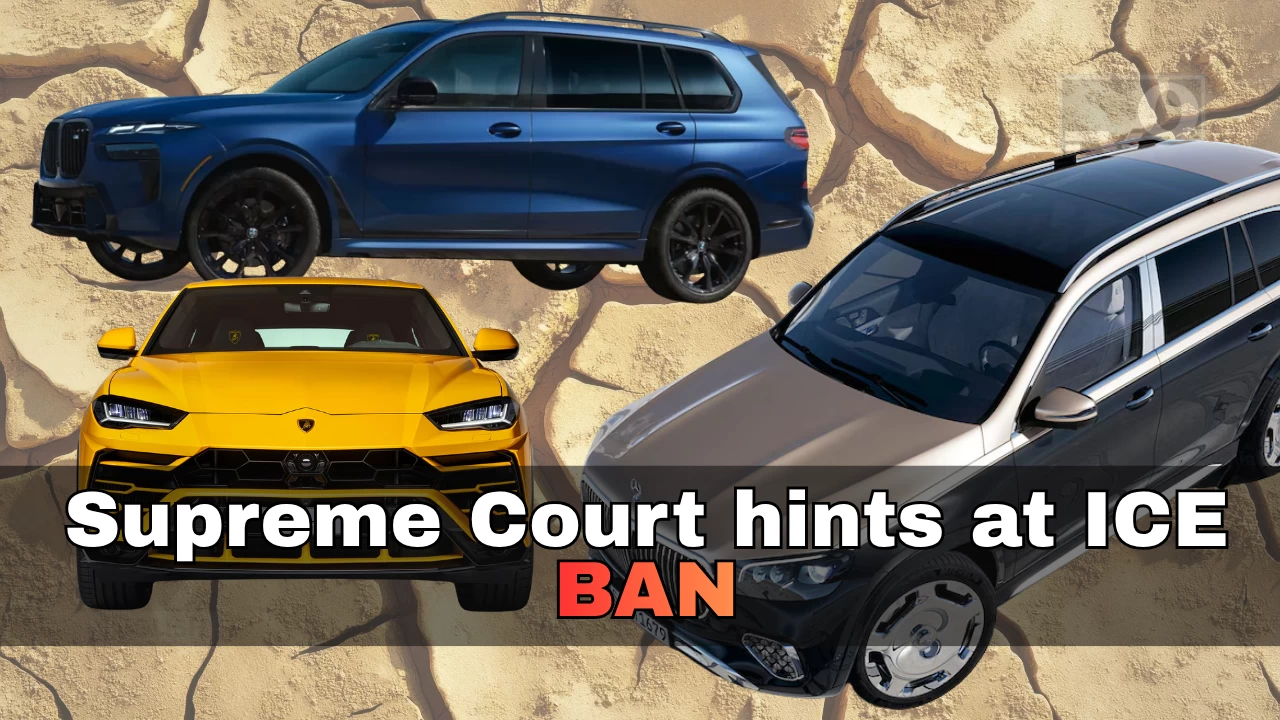

By signing in or creating an account, you agree with Associated Broadcasting Company's Terms & Conditions and Privacy Policy.


By signing in or creating an account, you agree with Associated Broadcasting Company's Terms & Conditions and Privacy Policy.

New Delhi: It was a regular Thursday in Delhi, smog hanging heavy in the air, when the Supreme Court turned the spotlight sharply on India’s VIP car culture. The country’s top court threw a surprising punch at gas-guzzling luxury vehicles, suggesting it’s time to start phasing them out and make way for electric alternatives. And the best part? The court thinks this shift won’t hurt the average Indian, since only a tiny slice of the population can even afford these fuel-hungry machines.
In a packed courtroom, the judges discussed the state of electric vehicle adoption in the country and made it clear: if bigger EVs are available today, then what’s stopping us from retiring high-end petrol and diesel cars first? It’s a bold idea, and it’s already sparking chatter across the auto industry, especially among enthusiasts of the ₹2 crore-plus luxury SUV segment.
According to Bar and Bench, Justices Surya Kant and Joymalya Bagchi were hearing a public interest case urging better EV policy implementation. During the hearing, they pointed out that many large EVs, SUVs and sedans are already available, and said that these can easily replace “gas guzzlers used by VIPs and big companies.” Instead of a blanket ban, they floated a phased approach, starting with luxury ICE vehicles. That way, the common man doesn’t get hit with sudden policy shocks.
Their logic was simple: very few people buy high-end ICE cars anyway, so banning them wouldn’t disturb the broader population. Think Range Rover Autobiography, Mercedes-Maybach GLS, Lamborghini Urus Performante, and even the monstrous Rolls-Royce Cullinan. All of these come with massive engines, guzzle fuel like there’s no tomorrow, and now may be the first in line to face a legal curb.
Even on the EV front, options like the BMW iX, Mercedes EQS, Audi e-tron GT, and the Lotus Eletre are slowly entering the scene. And with a little push, the bench believes that EV adoption in the top segment could take off faster.
One major concern brought up by advocate Prashant Bhushan was the lack of charging infrastructure. But the court brushed that off, stating that once more EVs hit the roads, the market will naturally respond. Petrol pumps and existing bus stations, the judges noted, could easily add charging points.
The government, represented by Attorney General R. Venkataramani, told the court that 13 ministries are involved in the EV transition and that the issue is being taken seriously. He admitted that the implementation side of things still needs work and promised a detailed report on what’s been done so far.
The judges also suggested the idea of starting a pilot ban in metro cities like Delhi, Mumbai, Kolkata, Chennai, and Bengaluru. These cities already have bad air, long traffic jams, and VIP zones where most luxury vehicles are concentrated. Targeting these areas first might make the biggest difference in pollution levels, and push auto manufacturers to innovate faster.
It’s worth remembering that India’s National Electric Mobility Mission Plan was first launched more than a decade ago. A lot has changed since then. Battery tech is better, EVs are faster, and costs are dropping. But unless policy keeps pace, those ₹1 crore diesel SUVs will still dominate elite driveways and red beacon convoys.
If this push goes through, luxury carmakers will need to rethink India plans. Several brands still rely heavily on diesel engines for their premium SUVs. A phased ICE ban would hit slow-moving inventory and could force brands to fast-track EV launches in India. Enthusiasts might see more high-performance EVs on Indian roads sooner than expected, think Porsche Taycan Turbo S, which already does 0–100 kmph in under 3 seconds.
At the same time, questions remain. Will policy actually shift? Will infrastructure match pace? Can pricing be made fair? And most of all, will Indian buyers warm up to electric cars without the roar of an engine?
We’ll know more in four weeks when the Centre submits its report.








